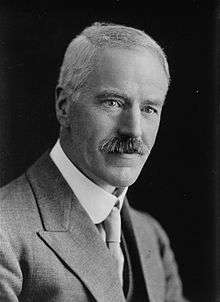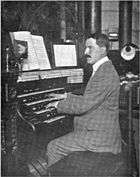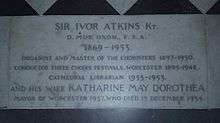Ivor Atkins



Sir Ivor Algernon Atkins (29 November 1869 – 26 November 1953) was the choirmaster and organist at Worcester Cathedral from 1897 to 1950. He is well known for editing Allegri's Miserere with the famous top-C part for the treble. He is also well known for "The Three Kings", an arrangement of a song by Peter Cornelius as a choral work for Epiphany.
Born into a Welsh musical family at Llandaff, Atkins graduated with a bachelor of music degree from The Queen's College, Oxford in 1892, and subsequently obtained a Doctorate in Music (Oxford). He was assistant organist of Hereford Cathedral (1890-1893) and organist of St Laurence Church, Ludlow from 1893 to 1897.
He composed songs, church music, service settings and anthems. With Edward Elgar he prepared an edition of Bach's St. Matthew Passion.
He was knighted in 1921 for services to music and was President of the Royal College of Organists from 1935 to 1936.
He was a friend of Edward Elgar, who in 1904 dedicated the third of his Pomp and Circumstance Marches to him. It was Atkins who later suggested that Elgar's 'Severn Suite' -- produced in 1930 as a brass band competition piece, and arranged for orchestra in 1932 -- should be transcribed for organ; Elgar suggested that Atkins do the arrangement himself. The resulting work -- on which Elgar and Atkins worked togeteher -- was completed in 1932 and published as Elgar's 'Second Organ Sonata'.
Sir Ivor Atkins' wife, Katherine, was Mayor of Worcester in 1937. Their ashes were interred in Worcester Cathedral.
References
- Moore, Jerrold Northrop (May 2008). "Atkins, Sir Ivor Algernon (1869–1953)". Oxford Dictionary of National Biography. Oxford University Press. Retrieved 2009-02-05.
- Oxford Companion to Music. Edited by Sir Percy Scholes. Oxford: Oxford University Press, 1955.
External links
| Cultural offices | ||
|---|---|---|
| Preceded by Hugh Blair |
Organist and Master of the Choristers of Worcester Cathedral 1897-1950 |
Succeeded by David Willcocks |